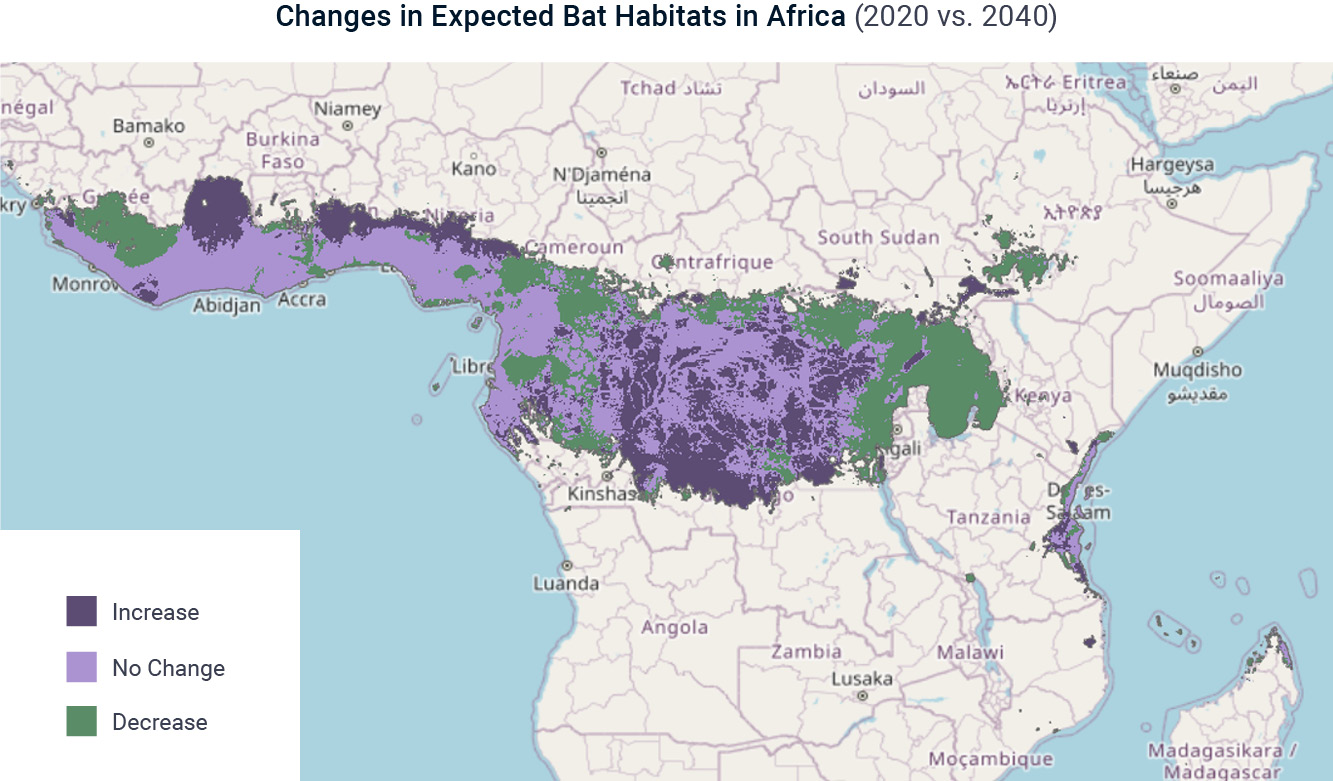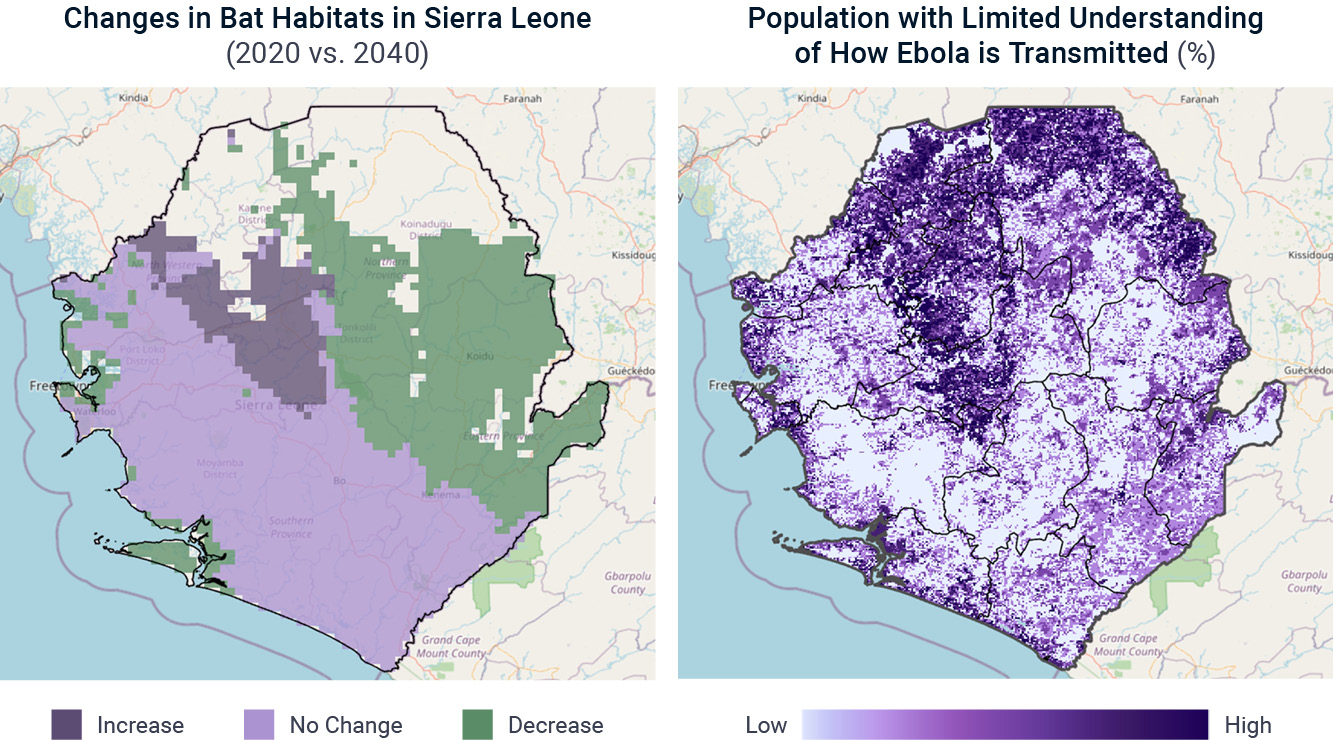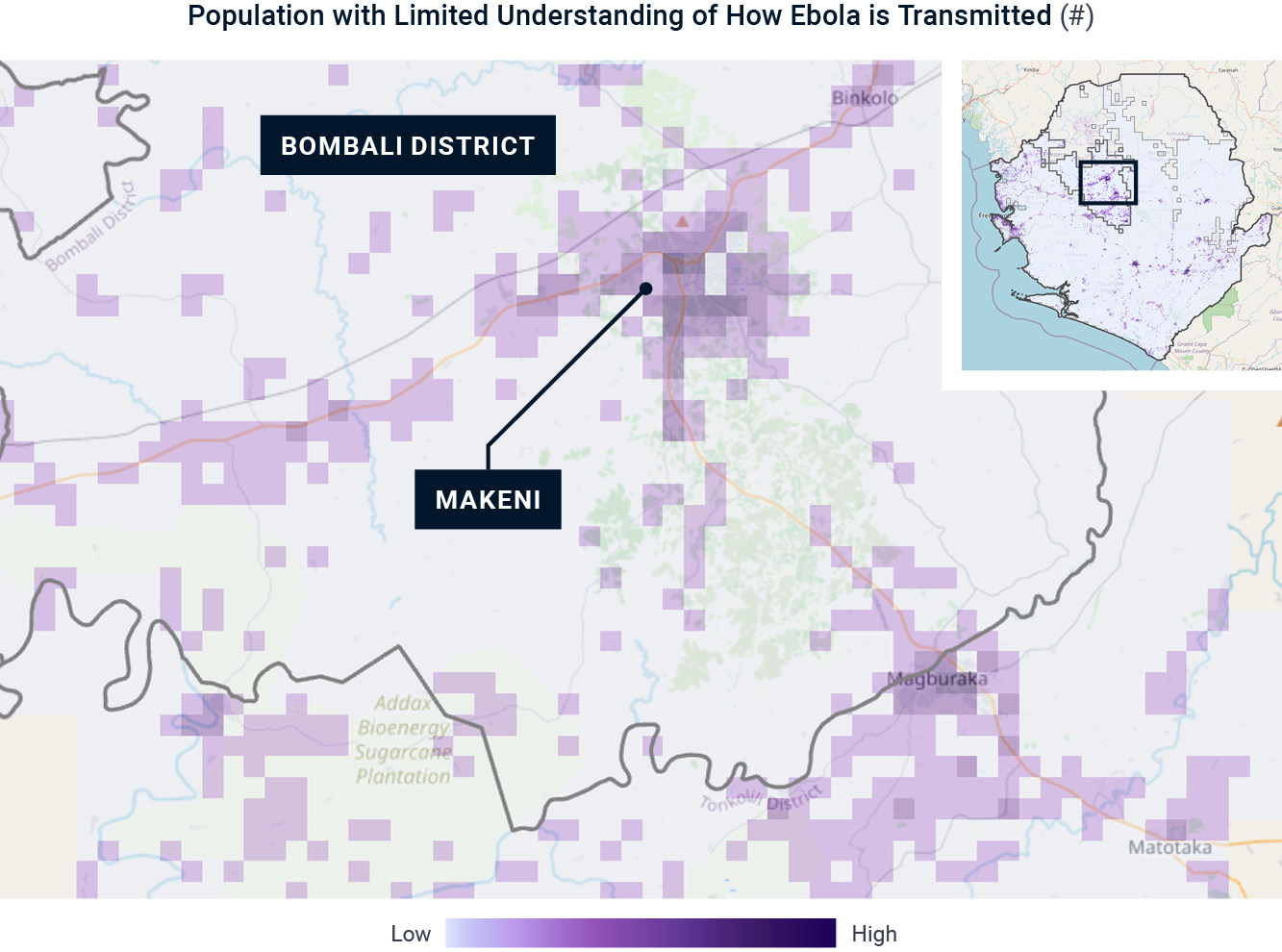Market Segmentation for Health Programs


The Challenge
How will climate change influence where future outbreaks are most likely, and how prepared will newly vulnerable populations be?
Our Approach
We start by looking at existing data on how climate change may affect expected bat habitats across Africa – a key vector for Ebola outbreaks in human populations.

While these existing models help us understand where a future Ebola outbreak may occur, they fail to account for the impact of local human behaviors on the changing risk of novel outbreaks.
How can hyperlocal population data help us better prepare for climate change?
To better prepare for Ebola outbreaks in new areas, it’s critical we understand community beliefs about:
Fraym is filling this gap by mapping demographic, socioeconomic, psychographic, and behavioral data down to the neighborhood (1km2) level.

Focusing on Sierra Leone, we see that there is a concerning overlap (dark purple areas) where we expect increases in bat habitats (a potential vector for Ebola) in communities with limited understanding of how Ebola is transmitted.
How can we better prepare for potential disease outbreaks in new areas?
Let’s zoom further into one of these hotspots – Bombali District.

Here we find that people living in areas suitable to bat species linked to past Ebola outbreaks may increase from less than one hundred in 2020 to over 460,000 by 2040.
If we dive deeper into the data, we find both A) widespread misinformation about Ebola and B) significant healthcare access concerns.
Improving Ebola transmission knowledge, preventive behaviors, and access to care here will be critical if we want to prevent future outbreaks in these newly vulnerable areas.
If you would like more information about this study or about our global health work, contact us or get in touch with our Global Health Sector Lead, Kenneth Davis, at [email protected] for more info.